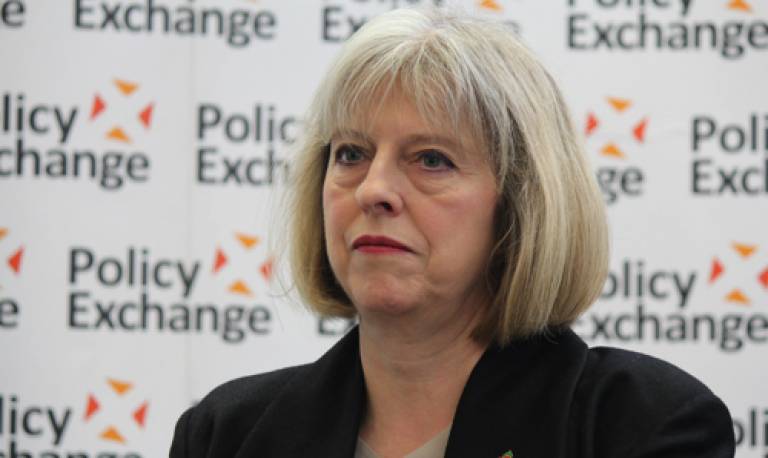Will this election result derail the PM's plans?
13 June 2017
The election result was a disaster for Theresa May and the consequences for Brexit are profound. Although this will certainly weaken the PM's hand, there is one way in which May could benefit.

Uta Staiger
When Theresa May called the surprise snap election she'd vowed so very often not to call, it was supposed to help her deliver Brexit. A decisive personal mandate, she claimed, would protect her vision of Brexit from the opposition parties hell-bent on derailing it-and strengthen her hand in Brussels.
Well, reality has proved somewhat different. A crushing of the saboteurs, in the Daily Mail's phrase, this was most certainly not. Indeed, with the Conservatives losing their majority, Jeremy Corbyn returned to Westminster emboldened, and the Lib Dems rallying some anti-Brexit energy, the question of "what the people want" has delivered a rather open verdict. In a striking reversal of the imagery we have been accustomed to, the composed, unified and well-prepared side now sits in Brussels. The UK seems deeply divided and rudderless.
What will this mean for Brexit? On the assumption that Theresa May forms a minority government, the progress of the Great Repeal Bill, and indeed of the primary legislation necessitated by Brexit, will be bumpy indeed. In the negotiations too, having previously nailed her colours to the hard Brexit mast, the lady may now be forced to turn. But which way? Is the "Norway" option truly back on the cards? Or does this in fact create the perfect storm for a "no deal scenario," with Brexiteers on the backbenches objecting to a final deal's many compromises, and a "progressive alliance" in opposition rejecting it for the lack of them? With the next elections not due until 2022, a strong majority would have bought the PM time to negotiate a transitional phase and thus avoid the infamous cliff edge. It is doubtful we will get that far.
Counterintuitively, this might end up playing into May's hand in Brussels after all. The basic assumption that a significant majority at home strengthens your hand in foreign policy is in itself questionable. While it gives the government more security to get legislation through, it also tends to fuel internal party dissent: after all, if backbenchers know the government is basically secure, they can oppose its less popular choices at minimal cost. Make no mistake, this election result is bad for May. But there is one silver lining: to be beholden to a difficult parliament at home could allow May to draw red lines more credibly.
Much now truly depends on alacrity and clarity. The EU side, despite claims of electoral meddling to the contrary, wanted a "strong and stable" negotiation partner who can get about business promptly. The clock, after all, is ticking.
Image of Theresa May - Policy Exchange via Flcikr (CC BY 2.0).
- Uta Staiger is the Executive Director of the UCL European Institute.
This article first appeared in Prospect and is reposted here with permission.
 Close
Close

